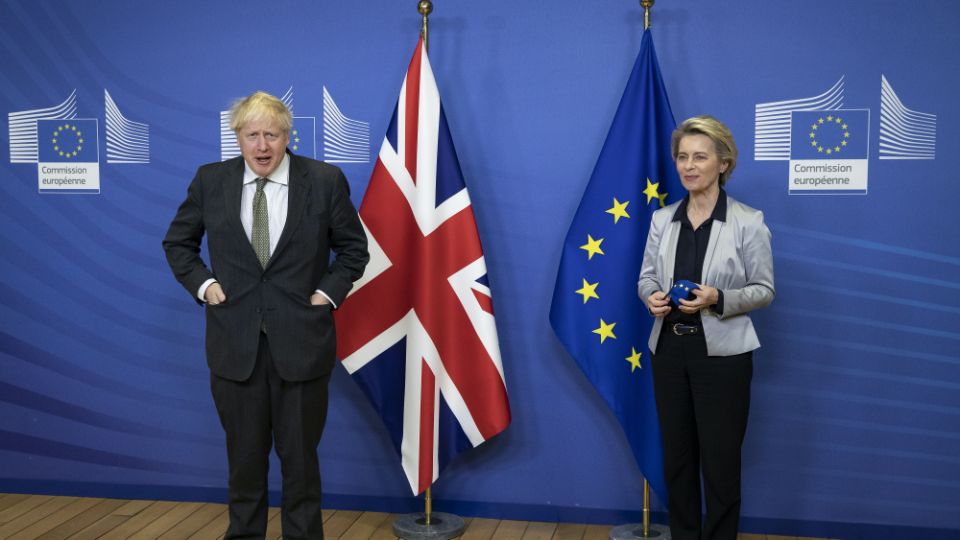
Brexit Trade Deal; Trade Talks ‘Unlikely’ To Go Beyond Sunday
European Commission President Ursula von der Leyen said no deal was the most probable end to “difficult” talks and the UK prime minister argued the EU needed to make a “big change” over the main sticking points on fishing rights and business competition rules.
The Sunday deadline was set by the two leaders after months of talks failed to achieve an agreement.
If a trade deal is not reached and ratified by both sides by 31 December, the UK and EU could impose taxes – tariffs – on each other’s goods and this could lead to higher prices, among other changes.
As talks between officials continue, the EU is determined to prevent the UK from gaining what it sees as an unfair advantage of having tariff-free access to its markets, while setting its own standards on products, employment rights and business subsidies.
It is also warning that, without access to UK waters for EU fleets, UK fishermen will no longer get special access to EU markets to sell their goods, but the UK argues that what goes on in its own waters, and its wider business rules, should be under its control as a sovereign country.
The two sides also disagree on whether the European Court of Justice should settle future UK-EU trade disputes.
The EU has rejected Mr Johnson’s request to bypass the European Commission and speak directly to French President Emmanuel Macron and Germany’s Angela Merkel about the unresolved issues.
According to EU officials, he was told discussions could only take place through the bloc’s chief negotiator, Michel Barnier.
Speaking on a visit to a vehicle battery factory in Blyth, Northumberland, Mr Johnson said: “We’re always hopeful and… our team is still out there in Brussels. If there’s a big offer, a big change in what they’re saying, then I must say that I’m yet to see it. If there was no deal, the situation would still be “wonderful for the UK”, as the country could “do exactly what we want from 1 January”, he added, even if this was “different from what we set out to achieve“.
Brexit happened but rules didn’t change at once: The UK left the European Union on 31 January 2020, but leaders needed time to negotiate a deal for life afterwards – they got 11 months.
Talks are happening: The UK and the EU have until 31 December 2020 to agree a trade deal as well as other things, such as fishing rights.
If there is no deal: Border checks and taxes will be introduced for goods travelling between the UK and the EU. But deal or no deal, we will still see changes.
Mrs von der Leyen, who met the prime minister in Brussels on Wednesday for three hours of talks, reportedly struck a downbeat tone when she told European national leaders the “main obstacles” to a deal remain.
She later told reporters that the two sides were still “apart on fundamental issues”.
But German Foreign Minister Heiko Maas struck a more upbeat tone, saying: “We believe finding a solution in the talks is difficult but possible.”
And his Irish counterpart, Simon Coveney, said those thinking no deal would be “in the EU’s strategic interests” – as it could be in a stronger position to negotiate again with the UK in six or 12 months’ time – lacked an “understanding” of the “British mindset”.
Earlier on Friday, UK Culture Secretary Oliver Dowden suggested UK farmers and car manufacturers would get extra financial help if the EU targeted their products with tariffs.
And the EU has set out contingency measures it would take in the event of no trade agreement being reached with the UK.
It says these would ensure UK and EU air and road connections still run after the post-Brexit transition period – under which the UK has continued to follow most of Brussels’ rules – ends on 31 December. They also allow the possibility of fishing access to each other’s waters for up to a year, or until an agreement is reached.

